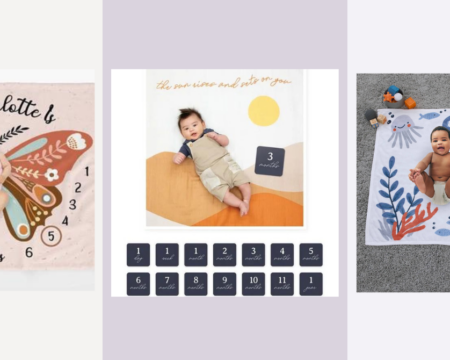11-month-old baby milestones

In This Article
The countdown to your baby’s first birthday is on! With an 11-month-old baby, playing is learning. From testing their problem solving skills by motoring around the room (by crawling or possibly walking) to doing some cause-and-effect experiments with their toys, your baby is continually turning feedback from the world into knowledge.
Looking ahead, your goal should be to help stimulate your baby’s body and mind with developmentally appropriate activities. By keeping track of what developmental milestones your baby is working on achieving, you can support their development and consult with your pediatrician if you have any questions or concerns.
Related: Baby Feeding Guides & Schedules
11-month-old baby milestones
Here’s what The American Academy of Pediatrics says about 11-month-old baby milestones.
Cognitive:
- Your 11-month-old baby’s receptive language skills are much better than their expressive language skills at this point. That means they can understand a pretty good amount of what you’re saying—including simple commands like “go to the door.”
- Your baby’s mobility means they might be getting into a lot of things. That’s just their curiosity coming out! Your baby might enjoy dumping out bins of toys and pulling items out of cabinets. Just be sure to keep anything out of reach that could be hazardous.
Motor Skills:
- On average, babies begin walking between nine and 15 months—with the most common point for taking first steps happening right around their first birthday. Even if your baby isn’t ready to stride quite yet, they should be working on pre-walking skills, such as standing unassisted and cruising along the sides of furniture. Note that the AAP discourages the use of baby walkers due to safety concerns.
- If you haven’t already, introduce a sippy cup to your 11-month-old with a little bit of water. They should be able to get the hang of it pretty quickly, which is helpful when you need to start phasing out bottles in the next few months.
Social and Emotional:
- At 11 months old, your baby has probably been babbling up a storm for a while. Now, you should notice some true “words” working their way into their vocabulary. Don’t put too much focus on pronunciation for now. What you’re looking for is a word that they use consistently to describe something, like “baba” for bottle.
- With separation anxiety often peaking around this point, your baby may be hesitant to leave you—even to go to another person they know. Along with learning that objects are unique, your baby is realizing that you are one-of-a-kind. This can be emotionally challenging for you both, but your baby will soon learn that you come back.
Related: Baby Sleep Guides & Schedules

How to support your 11-month-old baby’s development this month
Up for a little homework assignment, mama? Here are some 11 months old baby activities to support your cutie’s development.
- Help your 11-month-old baby have freedom to safely explore by clearing the living room or playroom floor of small objects or things that could be dangerous for them to pull on.
- Play with your 11-month-old baby with songs that have hand motions, such as The Itsy-Bitsy Spider and Wheels on the Bus.
- Encourage your 11-month-old baby’s communication skills by having focused conversations. Your baby may have a lot to “say.” (Whether you understand it is another story.)
It’s science: Harvard researchers say this type of play helps your baby’s cognitive development
Want to help your baby’s brain reach its full attention? Of course you do—so take a cue from Harvard researchers and engage in a little “serve and return” play with your 11-month-old baby. Here’s how it works:
- Notice when your child is “serving,” like when they point or say something.
- Return the serve by acknowledging your baby, which rewards their curiosity.
- Name your child’s interests, such as by saying, “Yes, I see the dog!”
- Take a turn after a moment by pointing out something else to your child.
- Let them finish the game when they seem ready to move on.
Playing with your baby is becoming an increasingly interactive, exciting way to bond—but it’s also an important way for them to learn. Engage in a way that feels right to you and, remember, a little solo play is good for your baby, too. As you look ahead, keep your baby’s milestones in mind. If you have questions or concerns, bring them up with your child’s doctor. Early intervention leads to the best outcomes.
11-month-old baby 101:


